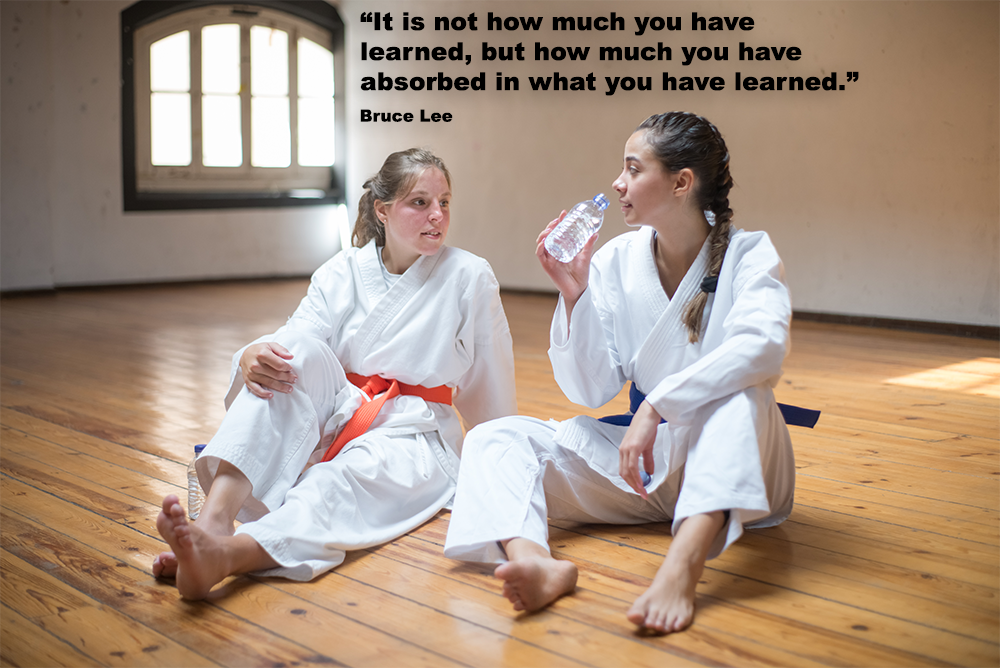
It’s my belief that it is good to be curious to try and acquire knowledge about everything around us.
.
Eagerness and passion develops curiosity which is hugely important in the martial arts. It’s how we analyze and understand our karate at a deeper level. If you are the type of practitioner who believes in “EAT-SLEEP-REPEAT”, then what are you learning?
.
Curiosity is what keeps us open-minded to the limitless possibilities that we can imagine, and understand things in a different way, often differently to the way it’s being presented. Curiosity is a sign that we are interested and that our minds are active.
.
But of whom are we asking the question? And what type of question?
.
We are told that traditionally, karate is taught by blind acceptance. I remember many times being told to “just get on with it”. The Instructor stands out at the front of the class and barks orders, occasionally moving an arm or leg of the student, and if anyone DARES to ask a question…..
.
I discovered that finding the right question is so important because that’s the only way to get the right answer. Your Instructor can only know what your understanding of a principle or technique is, by the questions you ask and the answers you give to his questions.
.
I appreciate that some students ask questions because they are lazy and don’t want to do the physical training, and there are those that are naturally argumentative, but questioning is a skill and it needs to be taught like any other. We have to encourage students to seek out and ask the right kind of questions, to be curious.
.
When I ask “any questions?” of my students, I have a genuine desire to know if the student understands what is being asked of them.
.
There is another aspect to questioning that is important. We don’t just teach a student and suddenly they “know” what is being taught to them. Understanding takes time. The instructor encourages the idea, so that the understanding can begin.
.
A negative training environment where the Instructor doesn’t encourage or use the tool of questioning and feedback, stifles this deeper understanding. And this is why today, there is so much superficial martial arts.
.
You only have to look at those schools where the students are like clones that have no understanding or development on the inside, where the instructor acts like a Drill Sergeant – and if you think for yourself….!
.
If we ask deep questions of someone else, we are seeking a transfer of knowledge from them to us. How are you supposed to transfer complex principles and experience without that curiosity? You can’t, at least, not efficiently, so without a sufficient answer that is helpful, it will distract you from the task of practicing without any understanding.
.
Of course a student must go through the process, repeating the techniques over and over, but it’s not just “how” they do the technique, but “why”.
.
We can ask questions of ourselves too, I think there is value, provided that it is the right type of question, directed to a useful purpose. For example, if I ask myself what is the quality of my movement when I perform an action one way, and compare that to the quality of how I do it another way, I will direct my mind to ask questions of myself, which no-one else can answer for me. What I hope to obtain by asking the question is a greater awareness of my own experience in the moment.
.
What can be useful I think is the sharing of experience, not because one student’s experience maps precisely onto anyone else, but because it can prompt further, internal questioning, and greater awareness.
.
At the end of the day, your experience of the art remains uniquely yours….. But, be curious.![]()
![]()
.
“It is not how much you have learned, but how much you have absorbed in what you have learned.” – Bruce Lee
.
.
